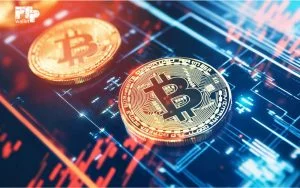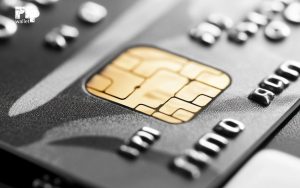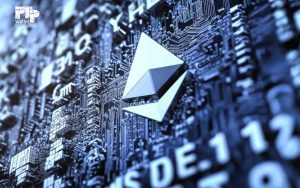Picture this: Imagine owning a significant piece of your favorite architectural structure or favorite art from the comfort of your home. By clicking some buttons on your PC or mobile gadget, you can easily buy or invest in these pieces. While this may sound futuristic or even unbelievable, the possibility of this occurring exists as real-world asset tokenization simplifies the process of ownership.
Asset tokenization is a groundbreaking innovation that transforms physical and even abstract or intangible assets into tokens on the blockchain, which allows them to be traded easily between interested parties. This innovation was born out of the technology sustaining Bitcoin and Ethereum and signifies an era where even your favorite LEGO character can be tokenized, owned, and even traded. But why does asset tokenization matter, and how can it transform businesses in the real world?
Understanding the Concept of Asset Tokenization
Asset tokenization refers to a process in which a certified token issuer creates digital tokens on the blockchain or other similar on-chain technology to represent an equivalent amount of physical or intangible assets. The blockchain’s immutability prevents double-spending or double-counting, guaranteeing the trade and validity of every generated token.
Asset tokenization has undoubtedly become an integral part of the world of decentralized finance (DeFi), particularly in the area of raising funding. For example, if you own or have a property worth $1,000,000 and need to increase 20% of its value without collecting a loan or selling a fraction of it, the concept of asset tokenization comes into play. You could fractionalize the property into tokens and issue them on the blockchain, with the option of selling them to prospective buyers. When a buyer acquires one or more of your issued tokens, they own a fraction of your asset.
Current market and predictions for real-world asset tokenization
By 2030, the real-world asset tokenization industry is projected to be worth US$16.1 trillion, according to a report published late last year on asset tokenization by digital exchange for private markets by global consulting firms BCG (Boston Consulting Group) and ADDX. In addition, tokenized assets are predicted to make up <10% of the global GDP as the decade ends.
This prediction came after multiple indicators—high tokenized asset trading volume, communal stakeholder agreement on tokenization, and an expanding pool of developers—showed that asset tokenization is bound to experience a 50X increase in the coming years. Crypto activities have limited blockchain opportunities, which may lead to the demise of many Web3 firms. Hence, only projects with the potential to uproot traditional financial systems (like asset tokenization) can thrive in a capital-constrained climate and are thus better positioned to draw the attention of investors. Sumit Kumar, Managing Director and Partner, BCG Southeast Asia, added.
Use Cases of Real-World Asset Tokenization
Understanding the real-world application of tokenization necessitates real-world use cases, such as the following:
Real Estate (RealT)
Many real estate companies tokenize real estate assets for consumers. For instance, RealToken leverages the U.S. legal system and Ethereum’s permissionless, unrestricted token issuance to provide investors with a straightforward, smart, and intuitive way to purchase fractional, tokenized properties.
Each property’s ownership is divided among a limited number of representation tokens so token holders can vote on matters about the property and collect rent based on token share. A property management company oversees each RealT property on behalf of its owners. Token holders no longer have to wait 30 days to get a bank transfer thanks to blockchain technology, and rent may be collected every week if you own property with RealT.
Art (Maecenas)
Using blockchain technology and the same crypto security that the world’s top institutions utilize, Maecenas is a marketplace that enables anybody to buy fractional stakes in outstanding pieces of art. The Maecenas platform uses a currency called ART, which is based on the blockchain, and through ART, community members may communicate directly with our Ethereum blockchain smart contracts.
Holding ART entitles investors to reduced costs for utilizing the trading exchange in addition to investing in the platform. Investing in beautiful art with Maecenas starts at only 1%, and these costs are only incurred once the investment is finished. The investor’s possessions’ ownership is safeguarded by almost impenetrable cryptographic keys.
Financial industry
Prominent financial institutions like BlackRock and Goldman Sachs are already tokenizing different kinds of physical assets using blockchain technology. These organizations provide tokenized goods to their clients and also tokenize assets for savings and operational purposes like collateral.
Sports and entertainment (FootballNet)
FootballNet is a decentralized ecosystem that is designed to offer multiple functions, like serving as a digital data warehouse and CRM and accessing control systems for stadiums. In addition, the token accounting offered by blockchain maintains the security of every peer-to-peer token transaction while maintaining the liquidity of in-app tokens. This allows club owners to get hands-on information on the fans’ attendance patterns, tastes, purchasing habits, and other characteristics to boost fan involvement and develop an atmosphere that draws sponsors and investment.
Why Should You Tokenize Your Assets in 2024?
Asset tokenization is an innovative and transformative concept that is reshaping asset management in real time. Hence, there are multiple reasons why businesses should consider tokenizing their assets with PTPShopy.
Increases liquidity: Originally, selling traditional assets like real estate required extensive planning and setup. Now, asset tokenization simplifies asset fractionalization, connecting interested investors to a secondary market for readily available tokens.
Encourages security: With blockchain technology, businesses can ensure security and avoid fraud as each dold token is immutable and recorded in a public digital ledger. This encourages openness between both parties.
Accessible investing: Asset tokenization has encouraged global reach and promoted accessible investment options for investors. Business owners can sell their tokens to a large pool of audiences located all around the world.
Eliminates intermediaries: The traditional investment scheme heavily relied on middlemen, brokers, or escrow agents to sell stokers. Their involvement increased the transaction’s cost. With blockchain technology, there is no need for escrow agents, as investors can easily buy sticks from the comfort of their homes.
Tokenize your assets easily with PTPWallet
PTPWallet is an asset tokenization development service for your business. We possess the best tools available to tokenize various kinds of real-world assets on the blockchain.
We operate at low cost and provide long-term management support for businesses. All you have to do is describe the real-world asset you intend to tokenize, and we will create a tokenization model that best suits your needs.
In addition, we can also help integrate a ready made crypto wallet and launch your token on both primary and secondary markets.



